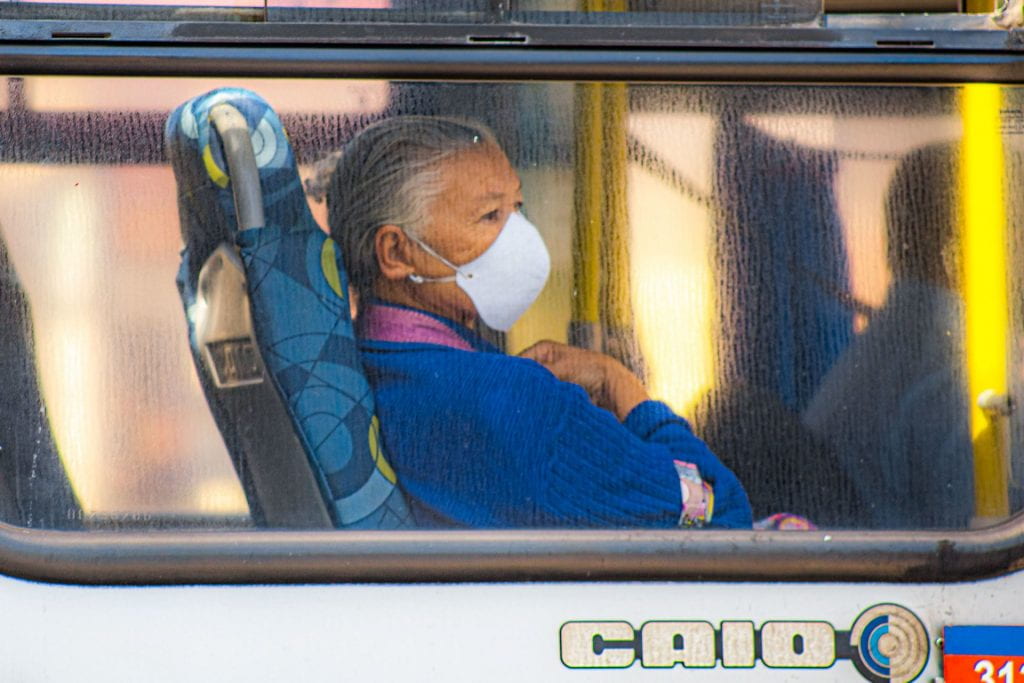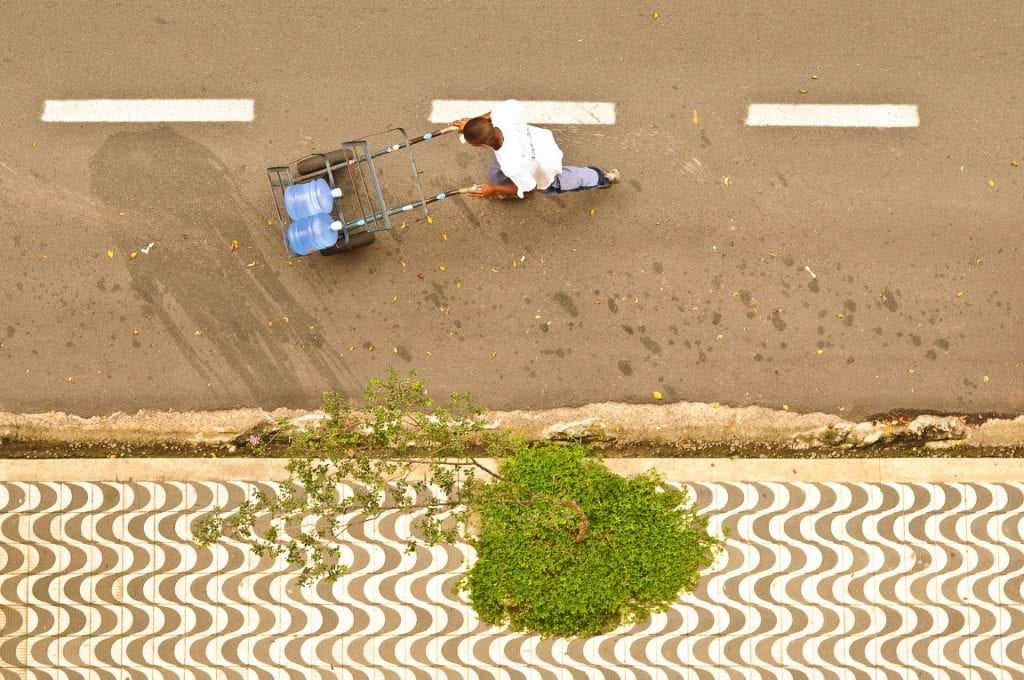By Aline Pires, Felipe Rangel and Jacob Lima.
The COVID-19 pandemic arrived in Brazil in a context of severe economic and political crisis. Since the 2016 parliamentary coup, we have seen the dismantling of social policies and rights, which, while never fully implemented in the country, were enshrined in the 1988 Constitution known as the ‘Citizen’s Constitution’. The current government of Jair Bolsonaro has taken this dismantling further with labour reforms that have made work contracts more unstable and living conditions more precarious. The situation is made worse by the fact that 40% of the workforce is from the informal labour market.
In a country with such a vulnerable population, the pandemic does not affect everyone equally. It has a strong class bias. The key recommendation of the World Health Organization (WHO) – stay at home to avoid contagion – has proved to be a privilege only possible for some. In the absence of social welfare, staying at home means, for many, not working and therefore not feeding your family. This situation is exacerbated by the necessary closing of schools, which provided the main daily meal for many children and young people from poor families in Brazil. For the middle and upper classes, social isolation and staying put has a radically different face to that experienced in the favelas, where families often share a single room, and basic sanitation and access to clean water is very limited, making hygiene extremely difficult.

A large contingent of delivery app workers, housekeepers, street vendors, self-employed and other informal workers have had to continue moving around outside their homes, exposing themselves to the risk of infection and death in order, paradoxically, to try and survive. In doing so, they guarantee a certain comfort and security for those who are able to stay behind closed doors. This dynamic exposes the fragility of labour relations in the country, characterised by the normalisation of instability and the individual responsibility of each worker to maintain their own standard of living.
The speeches of the President of the Republic and Brazilian businessmen advocating the end of lockdown – due to its impact on the economy – seek to legitimise the sacrifice of thousands of lives. They stress that, for workers, the threat of unemployment and impoverishment is worse than the threat of the virus. When the population’s survival is linked to the ‘good performance of businessmen’, fatalism is inevitable.
Capitalism has always been willing to sacrifice lives for profit. For this reason, historically, it was necessary to create protective measures to regulate the buying and selling of labour. The mediator par excellence was (and, it seems, must remain) the State, acting to contain arbitrariness in the always hierarchical relationship between employers and workers, in order to guarantee dignified living conditions for the most vulnerable sectors of the population.
In contrast, in the logic of the current (necro)economic policy that informs the speeches of some government officials and businessmen, the only social security available to people in Brazil is the income they receive from selling their labour. This produces the complex scenario in which the voices that defend the opening of lockdown are both the businessmen, who take shelter in their comfortable houses, and the informal workers, who need to go out and work in order to eat.

For those who are able to stay home and not travel in public spaces, we are witnessing a different kind of work pressure. Without any forewarning, many have suddenly been forced to find ways to do their jobs remotely. This can work in certain situations, for certain activities, and with certain rules and support. However, research developed by our group on remote work has demonstrated an intensification of the work day with unlimited hours, the suppression of pauses and breaks, the accumulation of functions and tasks, and the tendency of bosses and clients to consider professionals to be permanently available.
Women have been particularly impacted in these cases, as they are held responsible by society for the care of the home and family while also maintaining their jobs. The danger is that, at the end of the pandemic, the widespread acceptance of these intensified work practices – intended initially as a temporary, emergency measure – may result in them becoming permanent.
However, while businessmen and the federal government seem to be taking advantage of the crisis to implement ever more draconian policies, we are also seeing the strengthening of proposals to create new ways of securing a dignified existence for all, through the redistribution of income and the expansion of social security. Proposals for a basic citizenship income, taxation of large fortunes and demands for strengthening public services are examples of this.
We are fighting on many fronts simultaneously in Brazil, as we are faced by religious fanaticism challenging science, irresponsible populism, authoritarianism and lethal economic policy. But, while many people are anxiously awaiting the return to normality, others remind us that this normality was itself unfair and hard for the majority of the population. The pandemic also, therefore, offers an opportunity for social transformation. Instead of dealing with emergency issues to maintain or recover the previous ‘normal’, we might try to identify ways of building an alternative future – one that is more supportive, equal and sustainable than the pre-pandemic world.

